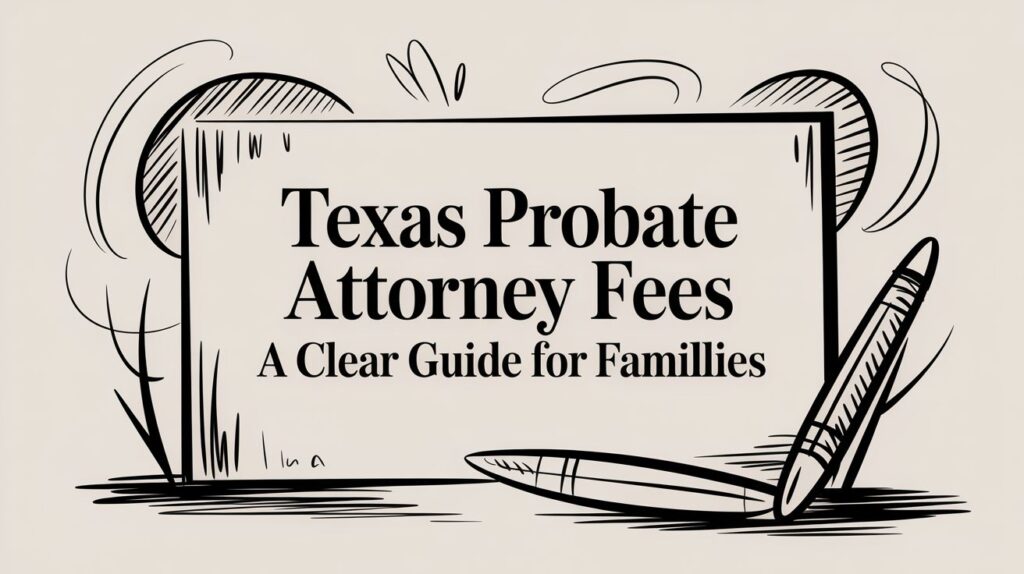Selling probate property in Texas involves a complex process, particularly when buyers make conditional offers. The court controls the sale of these properties, left behind by a deceased individual, while state laws and the decedent’s will also play significant roles. Conditional offers increase the complexity by imposing specific requirements that sellers must meet before finalizing a sale. In Texas, understanding the legal nuances of selling probate property with conditional offers is essential for executors, estate administrators, and potential buyers alike.
Understanding Probate Property Sales in Texas
Before diving into conditional offers, it’s important to understand how probate property sales work in Texas. Probate is the legal process through which a deceased person’s assets are administered and distributed according to their will or state intestacy laws if no will exists. If the property is to be sold during probate, it must typically be approved by the probate court. This process can involve several steps, including:
- Appointment of an Executor or Administrator: The court designates an executor (if named in the will) or an administrator (if there is no will) to manage the estate. This individual is responsible for handling the sale of the property, subject to court approval.
- Inventory and Appraisal: The executor or administrator must provide the court with an inventory and appraisal of the estate’s assets, including real estate. This step ensures the property is valued accurately before a sale.
- Approval to Sell: In many cases, the executor must petition the court for permission to sell the property. The court may require notice to heirs and beneficiaries, allowing them to raise objections if necessary.
- Compliance with Texas Probate Law: Executors and administrators must follow Texas probate statutes, ensuring all creditors are paid and assets are distributed under the law.

What Are Conditional Offers?
A potential buyer makes a conditional offer, or a “contingent offer,” which includes specific conditions or contingencies that must be met before completing the transaction. Conditional offers are common in real estate, particularly when buying probate property, due to the uncertainties surrounding such sales. Common contingencies in probate property sales may include:
- Financing Contingency: The buyer’s ability to secure a mortgage or other financing before the sale closes.
- Inspection Contingency: The sale is contingent on the buyer’s satisfaction with the results of a property inspection.
- Appraisal Contingency: Ensures that the property is appraised at or above the sale price for the buyer’s financing approval.
- Probate Court Approval: Requires the transaction to be approved by the probate court overseeing the estate.
Legal Framework for Conditional Offers in Texas Probate Property Sales
Texas law allows the sale of probate properties with conditional offers, but it imposes specific rules and requirements to protect the rights of beneficiaries, heirs, and creditors. Executors and administrators must adhere to these regulations to ensure the transaction is legally valid and enforceable.
A. Court Approval for Sales
In Texas, selling probate property often requires court approval. The executor or administrator must file a petition with the probate court seeking permission to sell the property. The petition typically includes:
- The terms of the sale: This includes the sale price and any contingencies included in the offer.
- Justification for the sale: The executor must demonstrate that selling the property is in the best interest of the estate and that the terms are reasonable.
- Notice to Interested Parties: Heirs, beneficiaries, and other interested parties must be notified of the pending sale, giving them the opportunity to contest it if they believe the terms are unfavorable.
The court evaluates whether the conditional offer is fair and whether the conditions will likely be met. It also considers competing offers, especially when the property is valuable or when someone contests the initial offer.
B. Handling Contingencies Under Texas Law
Executors and estate administrators must carefully manage contingencies in conditional offers. If a condition is not met (e.g., the buyer fails to obtain financing), the sale may be voided, and the property may need to be relisted. Key considerations include:

- Documentation: The sale agreement should clearly document all contingencies and conditions, leaving no room for ambiguity. This approach protects the executor and the estate from legal disputes if a contingency is not met.
- Time Limits: Conditional offers often come with time limits, such as a deadline for securing financing or completing an inspection. Executors should ensure these timelines align with probate deadlines and court schedules.
- Compliance with the Texas Property Code: Executors must also comply with the Texas Property Code, which governs real estate transactions, including disclosure obligations and buyer rights.
Challenges and Risks in Selling Probate Property with Conditional Offers
Selling probate property with conditional offers in Texas can present unique challenges. Executors and estate administrators should be prepared for these potential issues:
A. Dealing with Multiple Interested Parties
Probate property sales can attract interest from multiple parties, especially when the property has significant value. Conditional offers must be carefully reviewed and compared, ensuring that the best possible outcome for the estate is achieved. The executor may need to negotiate with multiple buyers, which can delay the process.
B. Potential for Contested Sales
Heirs or beneficiaries may contest the sale if they believe the terms of the conditional offer are unfair or if they prefer an alternate buyer. Contesting a sale can prolong the probate process and increase legal costs. Executors must justify the terms of the conditional offer to the court and provide evidence showing that it serves the estate’s best interests.
C. Complications with Unmet Contingencies
If a buyer is unable to meet the conditions of their offer (e.g., fails to secure financing or withdraws after inspection), the executor must start the sale process again. This not only delays the probate process but may also affect the property’s market value. Executors should be proactive in communicating with potential buyers and may need to consider backup offers or contingency plans.
Best Practices for Executors and Estate Administrators
Navigating the sale of probate property with conditional offers requires a thorough understanding of Texas probate law, as well as proactive planning and careful documentation. Here are some best practices:
A. Work with a Probate Attorney
Probate sales with conditional offers can be legally intricate. Executors and administrators should work closely with a probate attorney who understands Texas law. An attorney can help draft contracts, manage court filings, and ensure compliance with state and local regulations.
B. Be Transparent with Heirs and Beneficiaries
Transparency is key in probate proceedings. Executors should communicate openly with heirs and beneficiaries about the terms of the sale and any contingencies included in offers. This can help reduce the likelihood of contested sales and build trust among parties involved.

C. Thoroughly Review Offers and Contingencies
Executors should carefully review all offers, especially those with contingencies, to ensure they align with the estate’s needs and objectives. Seek multiple appraisals and consult with real estate professionals to ensure you list the property at a fair and competitive price.
D. Monitor the Progress of Contingencies
Keeping track of contingency deadlines is crucial. Executors must actively monitor buyers’ progress in meeting their conditions (e.g., securing financing or completing inspections) and prepare to negotiate extensions or adjustments when necessary.
Conclusion
Selling probate property with conditional offers in Texas involves a complex interplay of probate law, real estate regulations, and the interests of heirs and beneficiaries. Executors and estate administrators must navigate these complexities carefully, ensuring compliance with state laws and court requirements while protecting the interests of the estate. By understanding the legal framework and following best practices, executors can effectively manage probate property sales, even when conditional offers add extra layers of negotiation and documentation. Working with experienced legal professionals and maintaining transparent communication with interested parties can help facilitate a smoother probate process, benefiting all involved.








